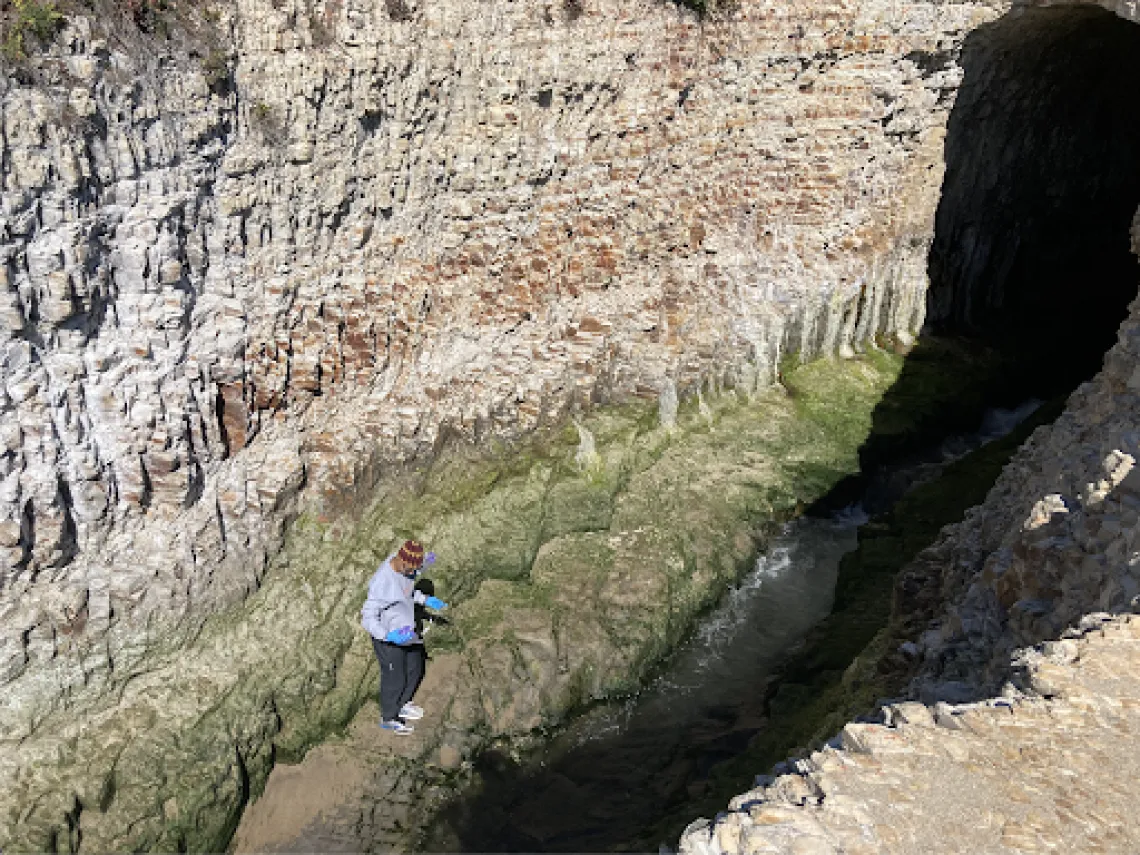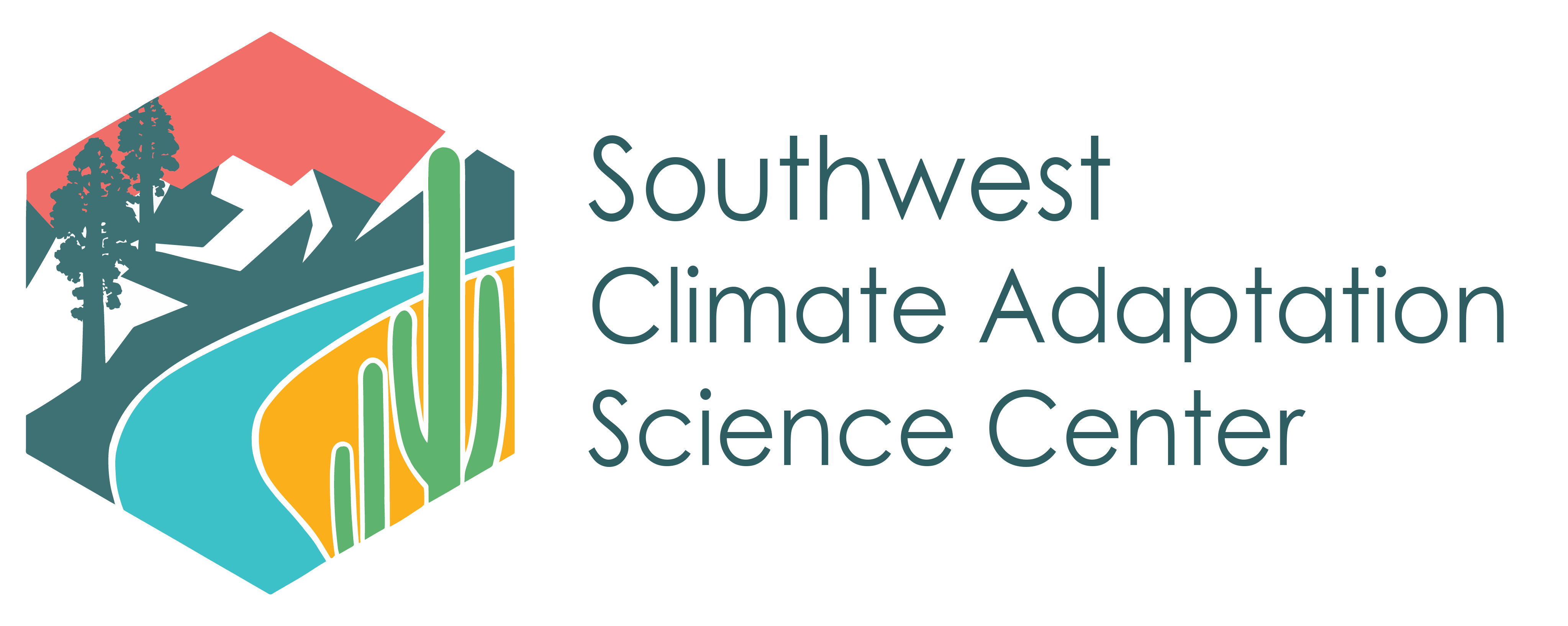Building Connections Through Interdisciplinary Science

Elijah Catalan is a PhD student at the University of California, Los Angeles in the Institute of Environment and Sustainability. Below are his reflections on the SW CASC Natural Resources Workforce Development (NRWD) Fellowship.
As a third year PhD student at UCLA’s Institute of Environment & Sustainability, my thesis research is focused on the application of environmental DNA metabarcoding to the monitoring of aquatic ecosystems and restoration efforts. I heard about the SW CASC Natural Resource Workforce Development Fellowship from an older graduate student in my lab and past NRWD Fellow, Tanner Waters. My PhD program is interdisciplinary in nature and my experience with aquatic ecosystems in the Southwest U.S. and in collaborating with local organizations and Indigenous communities fit well with the goals and theme of this year’s NRWD Fellowship–climate-informed management of natural resources in aquatic ecosystems to support effective climate adaptation. We proposed a project where we will analyze how and where compounding effects of cascading climate extremes contribute to fire-related impacts on aquatic ecosystems in the Southwest. Each fellow in my cohort has vastly different backgrounds and experiences from my own and it has been inspiring to learn from them. We have skills that complement each other, and we all have a strong motivation and passion to push this project forward.
As a Black man and environmental scientist, it is important to me to work with the Indigenous Peoples of the area and other community members. Working with those from disadvantaged backgrounds and people of color who live in the study area is important in order to promote their self-determination and participation in environmental management. This Fellowship has given me the opportunity to pursue that experience and learn how hard it can be to ensure our science has a real impact. From past experiences, I have learned that some groups do not have the capacity for additional collaborations and that many communities find it difficult to trust scientists based on their own past experiences.
For this project, we aim to work with local officials from areas where we can produce more focused case studies of compounding extreme phenomena. Members of our cohort have discussed with stakeholders what their interests are, and we have been able to meet with other academics that work closely with key stakeholders. We are working towards solidifying roles for collaboration and to explore how our ideas might be useful for different organizations. We plan to continue to reach out to additional stakeholders that may also have the capacity for collaboration and can provide additional insight into the needs of environmental managers and community members.
After completing my graduate studies, I plan to enter a research-based career where I can help communities who are disproportionately impacted by environmental conditions and those that are underrepresented in the field of environmental science. My goal is to advance environmental justice and decolonize scientific research through my work. The NWRD Fellowship is a great addition to my graduate research experience–it is helping me improve my skills in fostering collaboration between very different types of scientists and in networking with natural resource management scientists and decision-makers. These skills will assist me in the future as I aim to promote communities’ self-determination in natural resource management. Additionally, the experience will improve my resume with potential publications and research presentations, and the additional funding will provide security during my early career stage of life. I would absolutely recommend for others to apply to join this network and I will be sharing the application with my lab members at UCLA when it opens again!

